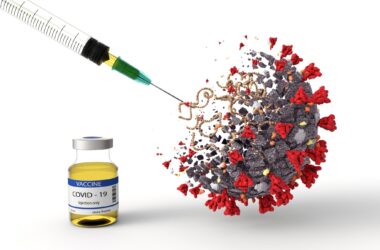Certains médicaments courants peuvent aider et d’autres entraver les réponses immunitaires.
La plus grande étude clinique des réponses immunitaires au paracétamol, aux anti-inflammatoires non stéroïdiens (AINS) et aux analgésiques opioïdes, axée sur les maladies infectieuses, a permis de mieux comprendre les effets involontaires de ces médicaments d’usage courant. Les résultats mettent en évidence le potentiel de certains de ces médicaments à rejoindre la lutte contre les maladies infectieuses anciennes et nouvelles.
Bien que la recherche sur ces médicaments se soit concentrée sur leurs effets sur la gestion de la douleur et de la fièvre, jusqu’à présent, leur impact sur le traitement des maladies infectieuses n’était pas clair. Les résultats soulignent la nécessité de mener davantage d’études dans ce domaine de recherche méconnu, aux implications très vastes.
Principales conclusions de l’examen clinique
- Contre la douleur : La morphine supprime des cellules clés du système immunitaire et augmente le risque d’infection, en particulier après une chirurgie du cancer.
- Pour la fièvre : Les antipyrétiques – par exemple le Paracétamol, l’Ibuprofène, l’Aspirine – peuvent réduire la réponse immunitaire souhaitable lorsqu’ils sont pris pour une vaccination.
- L’aspirine pourrait être une option thérapeutique abordable et accessible pour la tuberculose – qui affecte principalement les pays pauvres, avec des résultats bénéfiques démontrés chez les animaux et les humains.
- L’indométhacine, un anti-inflammatoire, pourrait réduire la réplication virale dans le Covid-19 mais des essais à grande échelle sur l’homme sont nécessaires.
Les chercheurs dirigés par la Faculté de médecine et de santé de l’Université de Sydney ont opté pour une revue “clinique” afin d’avoir une portée plus large pour synthétiser les preuves disponibles, notant l’importance de recherches et d’essais supplémentaires concernant les réponses aux maladies infectieuses.
La recherche n’était pas planifiée et les résultats inattendus, l’auteur principal Christina Abdel-Shaheed expliquant qu’ils étaient initialement intéressés par l’étude des impacts possibles du paracétamol (acétaminophène) pendant la pandémie, lorsque les gens accumulaient le médicament dans les premiers mois de COVID-19.
“We decided to study painkillers and fever medications generally and were amazed by what we found,” she said.
“In 14 years of studying pain, this is the most important research I have been involved in.”
The findings are published today in a leading journal, the British Journal of Clinical Pharmacology.
Caution urged during the pandemic
Pain researcher Dr. Christina Abdel-Shaheed, from Sydney Musculoskeletal Health, said the relationships uncovered with infectious diseases highlighted the need for rigorous clinical trials.
“Our review shows some of the common pain and fever medications may work with the immune system to fight infection, whereas others work against it and increase the risk of contracting or responding badly to infectious diseases,” Dr. Abdel-Shaheed said.
“Taking paracetamol or ibuprofen before or immediately after vaccination – for example for COVID-19 – to try to prevent mild fever or headache is not recommended, because this could reduce the body’s desirable immune response to the vaccine.
“For chickenpox, use of ibuprofen is not recommended as it might increase the risk of secondary bacterial skin infections.”
Dr. Justin Beardsley, infectious disease specialist at Westmead Hospital and researcher with Sydney Institute for Infectious Diseases, said an important finding of this review during the pandemic was that: “morphine – one of the most commonly used opioid analgesics in post-surgical and critical care – suppresses key innate immunity cells, thereby increasing the risk of infection”.
He highlighted: “This is particularly the case with cancer patients, who are already vulnerable to COVID-19.
“Efforts are needed to achieve adequate analgesia whilst avoiding immune-suppression in the immediate postoperative period caused by opioids such as morphine — both for people undergoing cancer surgery as well as for the immunocompromised generally,” said Dr. Beardsley, who also works with the Westmead Institute for Medical Research.
Positive impacts on our immunity
Professor Andrew McLachlan said on the positive side, the findings provide new insights for further research to evaluate these commonly used medicines, which could be repurposed to improve outcomes for people undergoing treatment for infectious diseases.
“With the urgent need for new treatments for COVID-19 and the declining efficacy of some antimicrobial agents due to resistance, now more than ever we need medicines which can maintain or enhance the efficacy of anti-infective drug treatments, said Professor McLachlan, the Head of School and Dean of Pharmacy at the University of Sydney.
“The results of this review suggest that commonly used medicines for pain and fever should be further explored as inexpensive and effective adjunctive treatments which influence immune and inflammation pathways for people undergoing treatment for infection.”
Under-researched area
Co-author Professor Ric Day from UNSW and St Vincent’s Hospital said research was still catching up in this new area of study.
“One of the problems is that widely used medicines –such as paracetamol, nonsteroidal anti-inflammatory drugs like ibuprofen, and corticosteroids such as prednisone – have been around for decades and in the past we didn’t tend to consider their impacts on the immune system because it has been an under-recognised area.
“From community use to hospital and acute care, these classes of pain and fever medications are among the most popular drugs worldwide but we need to consider the significant impact these can have on our immune system and our response to infectious diseases, including COVID-19.”
Reference: “Immunomodulatory effects of pharmaceutical opioids and antipyretic analgesics: Mechanisms and relevance to infection” 1 March 2022, British Journal of Clinical Pharmacology.
DOI: 10.1111/bcp.15281




